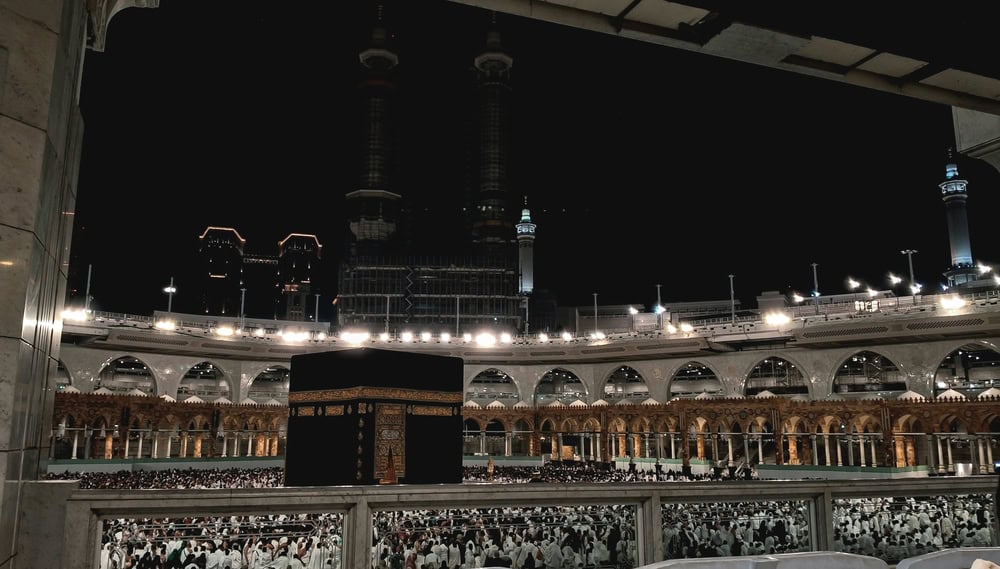How Do I Perform Umra, If I Have a Medical Condition That Causes Unexpected Discharge?
Hanafi Fiqh
Answered by Shaykh Yusuf Weltch
Question
How should I perform Umra if I have a condition where discharge exits unknowingly, and I’m waiting for medical results to identify it?
Answer
In the Name of Allah, the Most Merciful and Compassionate
Before answering your question, note that the colorless discharge of the female private part does not invalidate the ablution (wudu) and, therefore, will not affect the ‘Umra.
Purification in Tawaf
One must be in a state of ritual purification during the Tawaf. The Messenger of Allah (Allah bless him and give him peace) said, “The tawaf around the Ka‘ba is like the prayer except for the fact that you are allowed to talk in it.” [Tirmidhi]
Colored Discharge
If, however, the discharge you experience has a color other than white or clear, this will affect your ‘Umra. [Birgivi, Dhukhr al-Mutahhilin]
If you can perform the circumambulation of the Ka‘ba (Tawaf) and running (Sa‘y) between Mounts Safa and Marwa at a time when you are free from such discharge – this would prevent any issues with validity.
If you find this difficult or not possible, you may perform the ‘Umra despite the discharge, and your ‘Umra is valid. However, you would need to pay expiation for performing the ‘Umra without purification. [Maydani, al-Lubab fi Sharh al-Kitab]
The expiation is to merely make up for not having purification and not due to any sin on your behalf. [Ibid.]
Expiatory Charity
The expiation for performing the Tawaf without wudu is half a sa‘ (1.75kg to 2.32 kg) of wheat (or its monetary equivalent). It will have to be given as charity to a poor Muslim for every circuit performed without wudu. [Ibn Abidin, Radd al-Muhtar]
Hope this helps
Allah knows best
[Shaykh] Yusuf Weltch
Checked and Approved by Shaykh Faraz Rabbani
Shaykh Yusuf Weltch teaches Arabic, Islamic law, and spirituality. After accepting Islam in 2008, he completed four years at the Darul Uloom Seminary in New York, where he studied Arabic and the traditional sciences.
He then traveled to Tarim, Yemen, where he studied for three years in Dar al-Mustafa under some of the most outstanding scholars of our time, including Habib Umar Bin Hafiz, Habib Kadhim al-Saqqaf, and Shaykh Umar al-Khatib.
In Tarim, Shaykh Yusuf completed the memorization of the Quran and studied beliefs, legal methodology, hadith methodology, Quranic exegesis, Islamic history, and several texts on spirituality. He joined the SeekersGuidance faculty in the summer of 2019.
